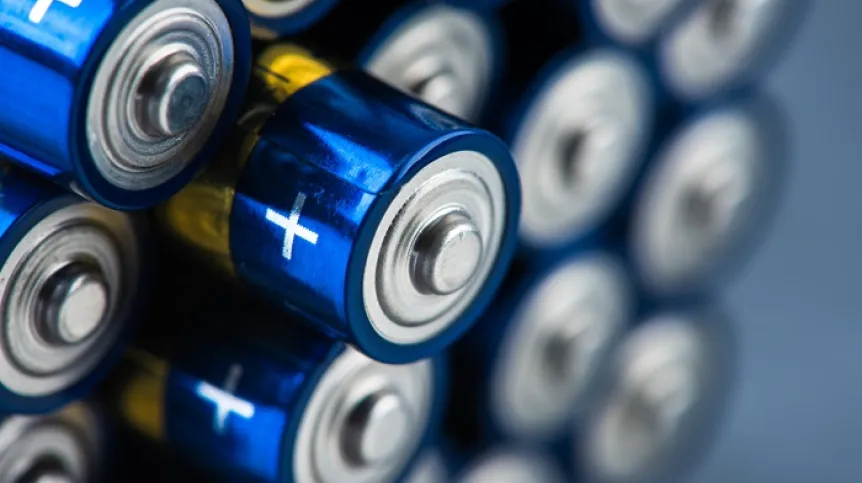
Creating an immortal battery is not yet possible, but scientists are trying to design it to age more slowly. Professor Krzysztof Fic from the Poznań University of Technology has received an ERC Proof of Concept grant for a project related to the ageing of batteries used in personal electronics.
The ageing process of batteries (scientists prefer to use the term 'cells') is still not fully understood. Researchers want to know if it is possible to create an 'immortal' battery - one that does not wear out. For now, they have taken a step forward thanks to 'operando' methods, which allows them to closely observe the battery wear process during operation in real time. The most visible effect of this research is the qualitative leap in the performance and functionality of mobile phones in recent years.
Professor Fic has been interested in the battery ageing process for many years. He has already completed one European Research Council (ERC) grant, which allowed him to better understand the ageing process of electrodes. Now he is implementing the second ERC Proof of Concept grant to commercialise the research results.
'Thanks to the first ERC grant (2017-2023), we have found out what happens to the electrolyte and electrode of the device, why they undergo specific changes. We also know how much the manner of use affects the speed of ageing. Together with the team, we proposed directing the chemical reaction to a different track, which enabled the development of a different energy storage technology. I always emphasise that it was basic research that led me to develop an idea that attracted business interest,’ Professor Fic told PAP.
He compares the ageing process of batteries to the ageing process of human skin.
'We would like to create an +immortal+ battery, but for now we only know that batteries are like human skin: they have to age. However, thanks to basic research, we know that they can be designed to age more slowly,’ he says.
Under the new grant, the scientists will check whether a battery with an improved energy storage process can be commercially attractive.
They will also use base materials other than the most common lithium-ion.
'The number of available materials is large. It may be sodium or potassium - very interesting technologies are being developed on their basis in Asia and America. There are also multivalent metals, for example zinc. Zinc cells and zinc-air cells are materials whose history is well known. Maybe it is time for a new version,’ Fic says.
He adds that 'it is not that after 18 months of the project, we will have a finished product that will revolutionize the market. During these 18 months, we will verify basic research. This grant is designed with cooperation with business in mind.’
The scientist emphasises that the results of his research are also of a strategic nature. The electronics market is dominated by one type of battery - lithium-ion, which makes the European Union economy dependent on powers such as China.
'Battery components are critical for many countries. Imagine what would happen if tomorrow China stopped the export of battery components. We would have a serious economic crisis, because at the moment there is no technology that could replace lithium-ion cells,' Fic says.
'In Europe, we already know that lithium is not our future, because this raw material is not found here. In addition, there are environmental protection issues concerning over-exploitation due to the huge demand for only one raw material. My team and I propose solutions , which may not yet make us lithium-independent yet, but show that other energy storage processes known in science can be used in a different way to end the lithium domination,’ he adds.
Work on discovering the immortality of batteries is also important from the point of view of the development of space and military technologies. 'When it comes to batteries used for military or space travel purposes, we want to make sure that the battery will maintain communication for several years. Because if we plan a mission for five years, and the battery dies after two years, then that battery becomes the main brake on the development of space missions and space exploration,’ Fic says. (PAP)
PAP - Science in Poland, Urszula Kaczorowska
uka/ zan/ kap/
tr. RL













